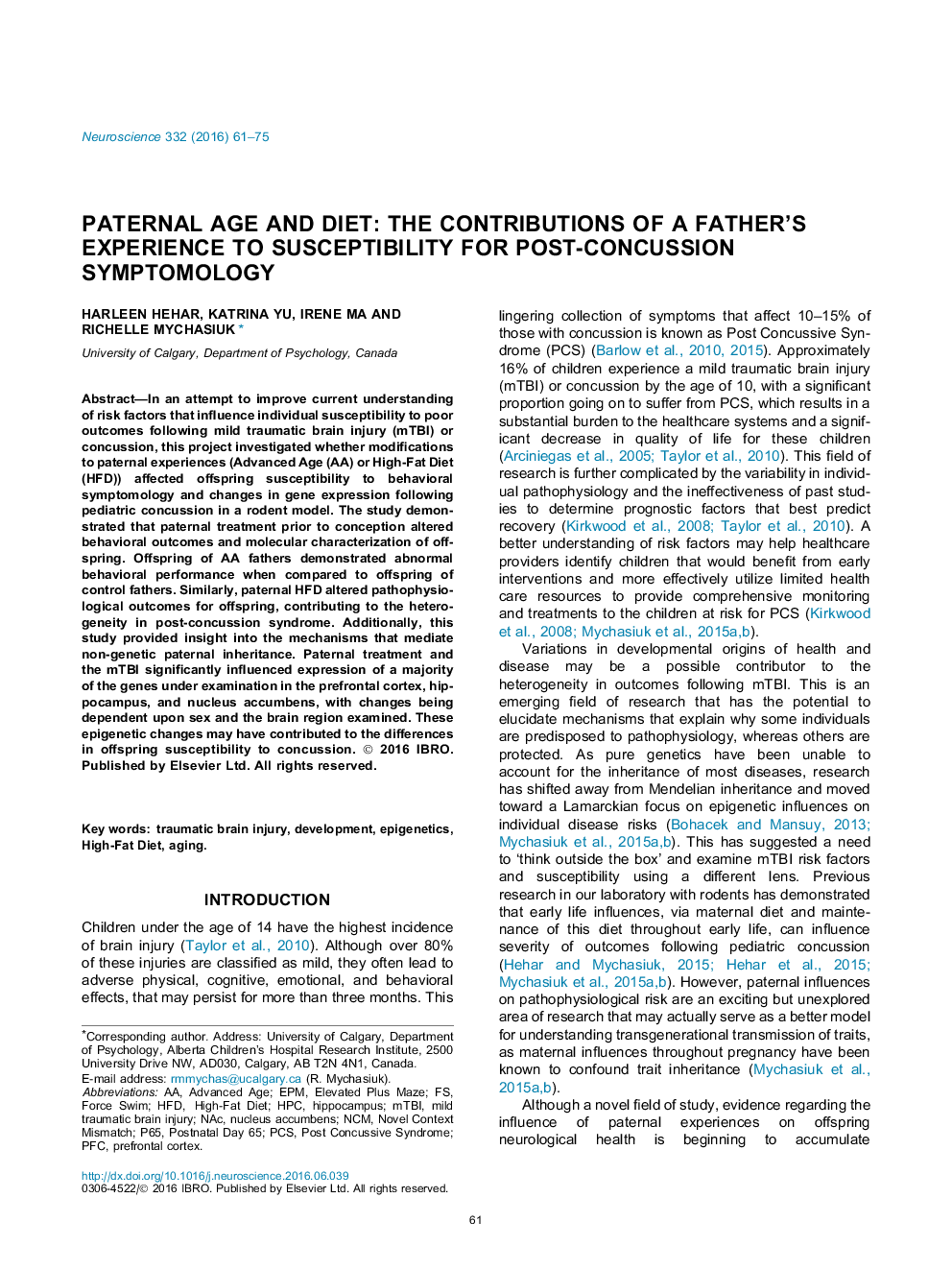| Article ID | Journal | Published Year | Pages | File Type |
|---|---|---|---|---|
| 6270806 | Neuroscience | 2016 | 15 Pages |
â¢Individual heterogeneity in concussion susceptibility may be linked to pre-injury factors, including paternal influence.â¢Advanced paternal age and consumption of a High-Fat Diet prior to conception altered baseline and post-injury behavior.â¢Paternal experiences modified expression of multiple genes in the hippocampus, prefrontal cortex, & nucleus accumbens.â¢The experiences of fathers prior to conception play a role in offspring health and warrant further examination.
In an attempt to improve current understanding of risk factors that influence individual susceptibility to poor outcomes following mild traumatic brain injury (mTBI) or concussion, this project investigated whether modifications to paternal experiences (Advanced Age (AA) or High-Fat Diet (HFD)) affected offspring susceptibility to behavioral symptomology and changes in gene expression following pediatric concussion in a rodent model. The study demonstrated that paternal treatment prior to conception altered behavioral outcomes and molecular characterization of offspring. Offspring of AA fathers demonstrated abnormal behavioral performance when compared to offspring of control fathers. Similarly, paternal HFD altered pathophysiological outcomes for offspring, contributing to the heterogeneity in post-concussion syndrome. Additionally, this study provided insight into the mechanisms that mediate non-genetic paternal inheritance. Paternal treatment and the mTBI significantly influenced expression of a majority of the genes under examination in the prefrontal cortex, hippocampus, and nucleus accumbens, with changes being dependent upon sex and the brain region examined. These epigenetic changes may have contributed to the differences in offspring susceptibility to concussion.
